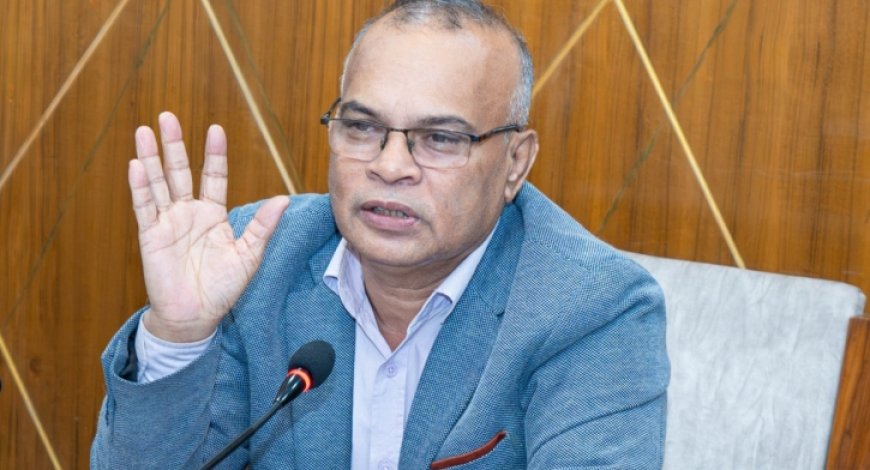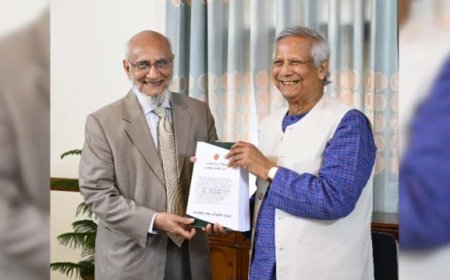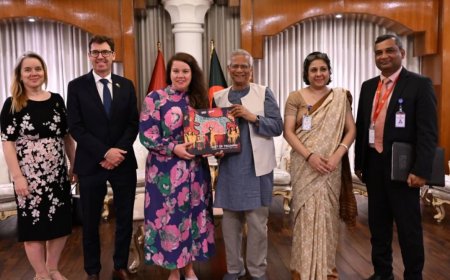Exclusive Interview with the Director General of Consumer Rights: Political Will is Crucial to Dismantle Market Syndicates
Exclusive Interview with the Director General of Consumer Rights: Political Will is Crucial to Dismantle Market Syndicates

The Directorate of National Consumer Rights Protection (DNCRP) carries out over 1,500 operations every month to combat market syndicates and regulate market activities. Director General Mohammad Alim Akhter Khan is dedicated to extending the DNCRP’s reach to grassroots levels. In a recent interview with Kaler Kantho, he discussed the challenges in the market and the DNCRP's ongoing initiatives. The interview was conducted by Sajib Ahmed.
Question: Despite government efforts, prices of essential goods remain high. What are the limitations in market management?
Answer: It's not entirely accurate to say prices haven't decreased. For items like vegetables and eggs, prices have gone down compared to before. However, for certain goods, the reduction hasn't met expectations.
Question: Are DNCRP's initiatives bringing any changes to traditional market practices?
Answer: Market discipline involves various factors, such as ensuring markets function in designated areas and preventing extortion. Law enforcement agencies oversee these areas. Regarding price control, over 50 teams conduct daily operations across districts, including 8–9 teams in Dhaka city, even on holidays. Collaboration with other organizations can amplify the positive impact. Reviving old market practices is not something DNCRP can achieve alone.
Question: What steps are being taken to address middlemen exploitation and market syndicates? How many operations are being conducted monthly?
Answer: DNCRP actively works to discourage middlemen, which has led to positive changes. We conduct over 1,500 operations monthly to dismantle syndicates and regulate the market.
Question: Despite fines, unethical traders often return to old practices. What permanent solutions can you suggest?
Answer: When a large portion of society is involved in wrongdoings, DNCRP alone cannot manage the situation. To break these deep-rooted practices, political and social leadership must intervene.
Question: Ramadan often sees an increase in adulterated and counterfeit goods. What is DNCRP's plan to stabilize the market this year?
Answer: Prices tend to rise during Ramadan. This year, the government has taken proactive steps, such as reducing duties and tariffs on key Ramadan items like soybean oil, sugar, chickpeas, dates, and vermicelli. Businesses have been encouraged to increase supply.
DNCRP prioritizes tackling adulteration. We take strict action based on verified complaints and urge local administrations, city corporations, and district bodies to stay alert. Our preparations for Ramadan are already underway, with efforts scaling up.
Question: Despite tariff reductions on some essentials, prices are not decreasing as expected. Why?
Answer: Businesses need to operate ethically and avoid excessively high profit margins. This ethical culture must be instilled among all traders. We urge them to recognize their societal responsibility and refrain from exploiting others for personal gain. Our operations will continue to monitor compliance.
Question: Low-income groups are struggling. Should TCB’s activities be expanded?
Answer: TCB is doing its best. There were previous allegations of ineligible individuals benefiting from dealerships. TCB is now identifying and removing such individuals from the system, revoking dealership licenses, and taking legal action against violators.
Question: How many operations has DNCRP conducted this year?
Answer: This year, we have conducted 7,245 market inspections, penalized 15,031 establishments, and collected over 99.4 million taka in fines. Political and social factors in July and August hindered our operations, but our main objective is to ensure affordable access to goods, not just impose fines.
Question: What additional measures are being considered to raise consumer awareness?
Answer: I have personally visited key districts and seen significant awareness among consumers. Our assistant directors conduct daily inspections in local markets, supported by organizations like the Consumers Association of Bangladesh (CAB).
We are organizing awareness programs such as seminars, posters, leaflets, and public notices. These initiatives will be further expanded.
Question: What is DNCRP’s future plan to ensure consumer relief?
Answer: Our plan includes addressing the limitations in implementing the powers granted by law, activating organizations linked to consumer rights, and tackling shortages in manpower and equipment. These areas are top priorities.
What's Your Reaction?





















































































